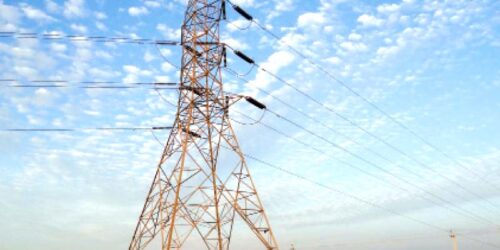LAHORE: Power tariffs, bad governance, red tape, middleman, nepotism, and corruption are the key economic challenges that need proper legislation and rule-based governance.
This was also the diagnosis of this government when it assumed power in August 2018. However even after 33 months in power the issues not only remain unresolved but have intensified. It has not happened for the first time.
The rate of corruption has increased during the tenures of every government that assumed power in the last 25 years. The governance is at its worst in the last two decades which is evident from the steep and mostly unjustified rise in prices.
The power sector is in shambles; its efficiencies continue to deteriorate. Nepotism is at its peak as we see unelected advisers and special assistance outnumbering the elected ministers in the government.
Unfortunately we are short of talent and this government has engaged the same set of people that served the past governments. The ruling party accused past governments of bad governance, corruption, and loot. Some of the persons engaged by the present regime were the key members of those governments. They are all flag-bearers of status quo. It is not possible to bring change through them.
The Its two finance ministers are the ones that served the last Pakistan Peoples’ Party government that is ranked amongst the worst in economic performance.
Ishrat Hussain is a symbol of status quo. Razak Dawood is a businessman, who served in Musharraf regime. We need someone who could break the status quo. This government changed the portfolios of nonperforming ministers many times instead of showing them the door for their incompetence.
Adviser of petroleum was changed when most of the damage was done. Railways minister was shifted to home ministry when the performance of the institution deteriorated further. The aviation minister through a gaffe brought down the PIA to half and with it the credibility of Pakistani pilots that were licensed by the Civil Aviation Authority.
The minister allegedly involved in the wheat crisis was shifted to planning ministry.
The accountability promised by this regime turned out to be a sort of revenge against political opponents while those looting under the nose of the government were spared. The proponents of the status quo are firmly in control. Pakistan cannot move ahead until the policies supporting vested interests are eliminated. It was the majority party that raised its voice against those that are both in power and business. They were right.
Businessmen after assuming power are expected to protect their interests. However the party conveniently ignored the fact the businessmen have penetrated our politics in large number. Leave aside the Sharifs, Tarins, Zardaris, our entire sugar industry is owned by the political families. Barring a few, most of the sugar millers or their close family members are lawmakers.
They are on both sides of the political divide. Through their influence they have kept the farmers captive who are not allowed to process their sugarcane into gur (jaggery).
They are exploiting consumers by ensuring a lid on imports through duties. They have facilitated encroachment of cotton areas by sugarcane crop. We are now net importers of cotton despite having the best land for its cultivation. The amount of foreign exchange we spend on cotton import yearly could finance the entire sugar needs of the country for three years. The consumers would get fair and assured rates. Our textile industry would operate with full confidence without dependence on cotton import. Government would be spared from providing periodic sugar export subsidies when production shoots up the demand.
The planners would have to take extremely bold decisions that could not be taken in the presence of vested interests on both sides of political divide.
We will have to open the economy for everyone and let them compete fairly without any government support. The entire governance sector is based to support the vested interests.
The bureaucracy has vested interest in allowing under-invoicing. The smugglers operate with the tacit support of the administration. The middlemen dictate the prices in agriculture both at the farmers end as well as the retail.
Power theft provides cheap electricity to wealthy consumers and is a source of lucrative income for the power sector staff from lowest to highest level. Only those suffer that have no influence. Unfortunately they are in overwhelming majority while vested interests hardly account for 10 percent of the population.





